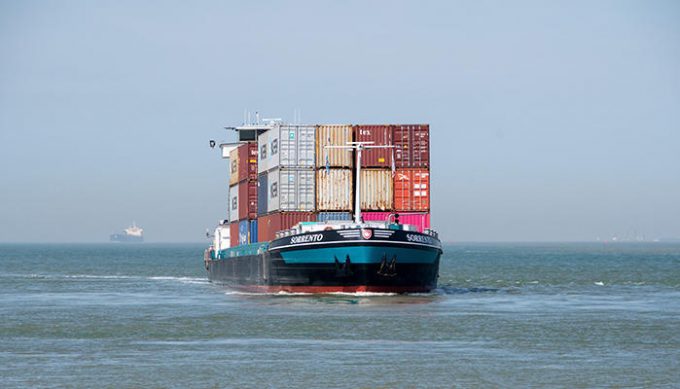Nippon Express – financial presentation for Q1, fiscal year ending December '24
With regard to its most recent performance, NIPPON EXPRESS said this week: – The addition of ...
TFII: SOLID AS USUALMAERSK: WEAKENINGF: FALLING OFF A CLIFFAAPL: 'BOTTLENECK IN MAINLAND CHINA'AAPL: CHINA TRENDSDHL: GROWTH CAPEXR: ANOTHER SOLID DELIVERYMFT: HERE COMES THE FALLDSV: LOOK AT SCHENKER PERFORMANCEUPS: A WAVE OF DOWNGRADES DSV: BARGAIN BINKNX: EARNINGS OUTODFL: RISING AND FALLING AND THEN RISING
TFII: SOLID AS USUALMAERSK: WEAKENINGF: FALLING OFF A CLIFFAAPL: 'BOTTLENECK IN MAINLAND CHINA'AAPL: CHINA TRENDSDHL: GROWTH CAPEXR: ANOTHER SOLID DELIVERYMFT: HERE COMES THE FALLDSV: LOOK AT SCHENKER PERFORMANCEUPS: A WAVE OF DOWNGRADES DSV: BARGAIN BINKNX: EARNINGS OUTODFL: RISING AND FALLING AND THEN RISING

Japanese logistics group Nippon Express is turning to coastal barging in south China, particularly the Greater Bay Area, which generates substantial cargo volumes, to overcome trucking shortages.
While Shanghai emerged from a two-month Covid-19 lockdown early this month, parts of the port city have had movement restrictions re-imposed after new outbreaks.
Nippon Express has developed barge routes covering the Greater Bay Area by detouring by land to the east (Huizhou Port) and west (Zhuhai Port) to connect the South China area (Shenzhen, Dongguan and Guangzhou) and Hong Kong by sea.
One route, connecting Zhuhai with Hong Kong, takes FCL and LCL cargo on daily departures with a one-day turnaround. The other route, linking Huizhou with Hong Kong, takes only FCL and, with two weekly departures, has a two-day turnaround.
Consignments can be accepted from Guangzhou, Dongguan, Nansha, and Shenzhen once the barging schedules have been confirmed.
Nippon Express has also introduced domestic transfer services, using coastal vessels to move containers from Shanghai to points in China, such as Dalian, Tianjin, Qingdao, Ningbo, Xiamen, Shenzhen, Guangzhou and Hong Kong, avoiding the need for trucking. There will be three weekly coastal sailings and it takes up to four days for cargo to arrive.
Nippon Express explained that there was “high demand for reliable logistics services” from factory owners in the Greater Bay Area after delays stemming from the Shanghai lockdown.
In addition, strict restrictions on truck traffic in the South China area, between Shenzhen and Hong Kong, and in the Huadong area, connecting to Shanghai’s suburbs, have had a major impact not only on domestic logistics but also on international supply chains.
A Nippon Express spokesperson told The Loadstar: “Although the Shanghai lockdown has been lifted, logistics congestion continues and there’s concern that once production is reactivated by customers’ factories, there could be a sudden increase in the volume of their goods. In such cases, trucks may not be able to be arranged and cargo may be stacked. So we’ll continue this service to maintain customers’ supply chains.”
Comment on this article